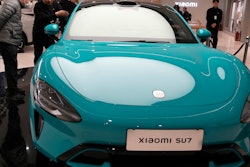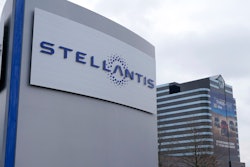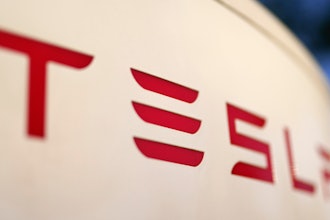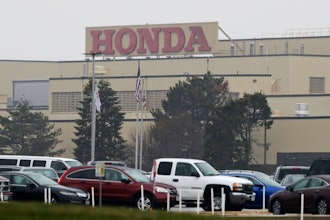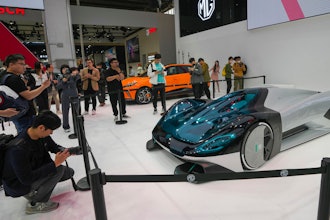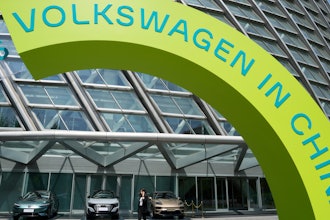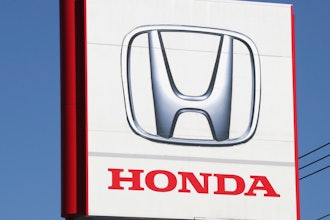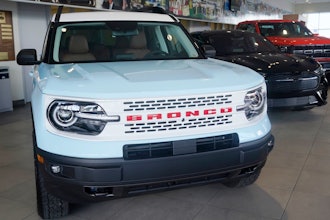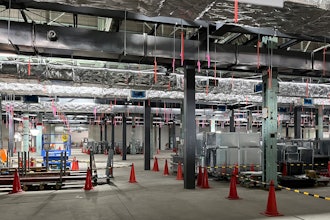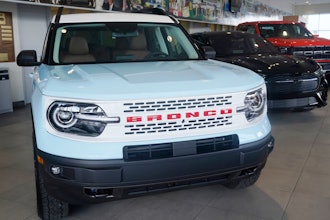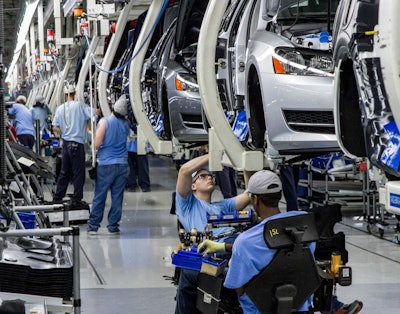
 Southern politicians are heating up their recruiting in hopes of landing a big auto manufacturing plant and the potential of thousands of high-paying jobs.
Southern politicians are heating up their recruiting in hopes of landing a big auto manufacturing plant and the potential of thousands of high-paying jobs.
North Carolina officials have been hunting for an auto plant since Mercedes-Benz jilted the state in 1993 for Alabama and an incentive package of more than $250 million, a deal worth about $400 million today when adjusted for inflation.
But for more than a year Gov. Pat McCrory's administration has focused on finally luring a carmaker after the country's least-unionized state saw BMW, Toyota, Honda, Nissan, Volkswagen, Hyundai and Kia build plants in South Carolina, Georgia, Alabama, Tennessee, Kentucky, Mississippi and Texas.
The North Carolina state House last week approved changing how state taxes are calculated for a big manufacturer and increasing McCrory's flexibility in offering tax breaks and other incentives.
"Both of those are directly related to us trying to draw an auto plant to North Carolina," said Rep. Jeff Collins, R-Nash. Car companies are "very investment intensive because of all the machinery they use and they pay very high wages. We don't want to penalize them for that."
Collins' district is near one of three tracts of land between 1,000 and 2,000 acres each being shopped as potential industrial sites. The mega-sites are in Randolph, Chatham and Edgecombe counties.
Collins said he's not involved with negotiations with the car companies, but heard from recruiters working to lure Sweden-based Volvo Cars and British-based Jaguar Range Rover to North Carolina.
The two carmakers are looking at sites in the Southeast as well as Mexico, said Mike Mullis, a Memphis-based site location specialist who has advised Toyota and other auto companies on picking locations in both countries. Toyota has auto assembly plants in Mississippi and Kentucky and engine plants in Alabama and West Virginia.
Spokesmen for Volvo and Jaguar Range Rover declined comment Friday about new auto plants, but public officials are increasingly dropping hints.
Four South Carolina legislators said this week Volvo was strongly considering a plant site near Charleston, The State newspaper in Columbia, South Carolina, reported (http://bit.ly/18o71mj).
Georgia Gov. Nathan Deal visited the United Kingdom in January to recruit Jaguar Land Rover, The Atlanta Journal-Constitution reported (http://on-ajc.com/1z8oiFO). His economic development commissioner later confirmed they visited the U.K. McCrory also visited the U.K. in January but aides refused to disclose whom he visited. South Carolina Gov. Nikki Haley last week left her state for a recruiting trip her aides refused to explain.
The Golden LEAF Foundation, which has poured more than $500 million from North Carolina's 1998 legal settlement with cigarette companies into economic development, said last month it reserved $50 million to help an automobile manufacturing plant defray infrastructure and worker training costs.
Splashing out the equivalent of a year and a half of the fund's normal grant-making budget was meant to signal North Carolina's determination to land a car factory that could create thousands of jobs and attract suppliers employing thousands more, Golden LEAF President Dan Gerlach said.
The top priority for automakers is a massive plot available for rapid construction and access to utilities and trains, ships or other transportation that can carry cars and trucks to market, Mullins said. After that, carmakers need to be assured of a ready, reliable workforce that can be expanded if production ramps up, he said. That's where North Carolina and Georgia stand out as states with fast-growing working age populations, he said.
After those basics, an automaker would compare what states would give them, Mullins said. A $300 million incentives offer would be "very strong package," he said.






